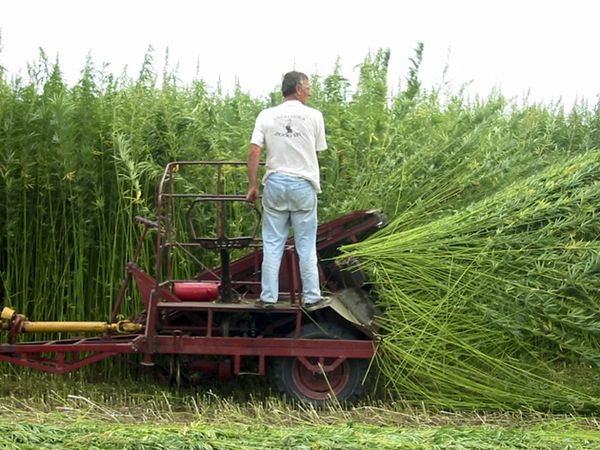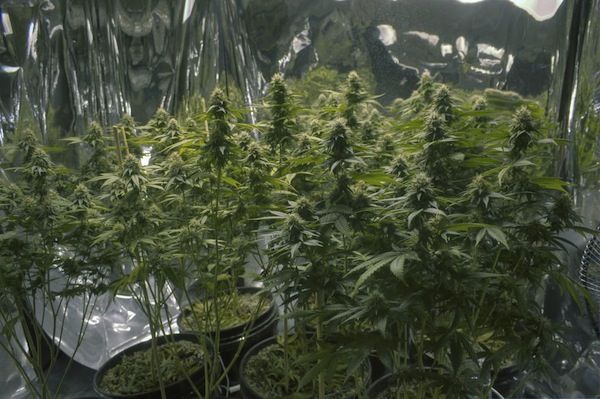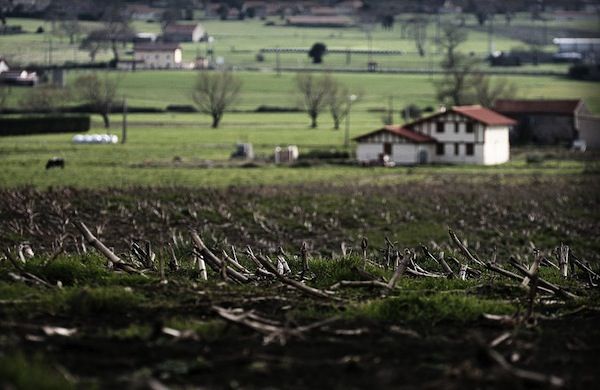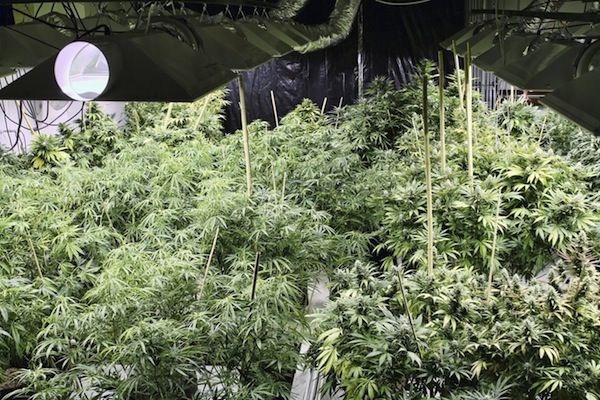- At a time when petroleum reserves are running out around the world and many countries are forced to buy fuel from others, some biomass researchers believe that it is necessary to look for reusable fuel sources that may be generated locally–something like an independent source of energy that is also capable of contributing to environmental quality. This source of energy may be drawn from hemp, specifically from the oil obtained from it.

Hemp oil is a nutrient-dense product, and the plant from which it comes is rich in cellulose. In fact, it contains more cellulose than wood, commonly used to produce paper: 67-78%, as compared to 40-50% in tree trunks. According to experts, this aspect is very important because cellulose makes possible the existence of biofuels. Although there are also other methods based on the conversion of sugars, they are less effective.
Some experts even state that hemp could supply carbon biofuels without an environmental or human impact, unlike ethanol from corn or the combustion of coal or oil that, when burned, produce carbon dioxide, carbon monoxide, solid particles, and sulphur dioxide, among other harmful substances.
New hemp-based fuel seems to be the most promising alternative to traditional sources of energy, whose days are already numbered.

Hemp researchers
Several researchers are already studying the optimum way to use hemp as a biofuel. One is George Huber, from the University of Massachusetts, who has spent several years studying how to perform the transformation at low costs.
This expert believes that, faced with the environmental problems created by dependence on fossil fuels and "diminishing" oil resources–which are forcing society to seek alternatives based on renewable energy–, "plant-based biomass is the only truly sustainable source."According to his team, this resource is significantly cheaper than petroleum and much more abundant.
Therefore, these researchers' goal is to develop clean technology–also through hemp–that makes it possible to use biomass and other sustainable resources to produce affordable and renewable diesel fuel, and fuel that can even be used by aircraft.

The possibility of growing it on fallow land
Richard Parnas, a professor at the University of Connecticut, has carried out the only research that specifically examines how hemp can serve as a basis for the production of biofuels. According to Parnas hemp could even be grown on fallow land, which represents almost 90 million hectares in North America alone. This would reduce the problem of growing hemp on land dedicated to primary crops, thereby avoiding competition between products.
Hemp grows fast, is resistant to disease, and is cheap to grow. It is a plant capable of acting as a CO2sponge, as it absorbs much more carbon dioxide during a short growth cycle than other larger plants.
In order for hemp oil to be turned into fuel it needs to react by means of an alcohol (usually methanol), and a catalyst producing biodiesel, in addition to a small amount of glycerine. When used, the fuel produces energy while generating less than one third of the pollution produced by petroleum.

The same infrastructure, less time, more work
In addition, the process takes place via pyrolysis, the standard technique for the chemical decomposition of organic matter–mainly–and other types of materials. A process that, applied to lignocellulose material–such as hemp stems–can produce charcoal, gasoline, ethanol, non-condensable gases, acetic acid, acetone, methane and methanol. Jeremy Briggs, who has studied hemp as a possible fuel, explains that pyrolysis facilities could also create jobs, as at least three shifts a day are required to keep them in operation.
These infrastructures could use the same technology that is currently being used to process oil from fossil fuels and coal–so it would not be necessary to use new technologies or replace those that already exist. This would help put an end to acid rain and reverse the greenhouse effect.
The experts say that hemp is at least four times richer in cellulose than any other known product, allowing it to produce more biomass than any other crop. Moreover, through photosynthesis it converts energy from the sun into biomass energy faster than any other alternative.

Hemp can produce up to ten tons of biomass per hectare every four months, using only 6% of the land in the United States. This could be enough to meet the whole country's power needs during that time period. For a similar case, but without using hemp, it would be necessary to use 25% of the world's energy.
This may be the solution for countries like the United States, which consumes nearly a quarter of the world's petroleum, with a population that does not even account for 5%of the global population, especially at a time when price increases, climate change and endless crises in the Middle East are forcing people to reassess the way they use energy. Overcoming our dependence on oil is now possible, in a natural way, thanks to photosynthesis and our precious hemp.
---------------------
With information from: Theleafonline.com, Biofuels.che.wisc.edu, Chems.msu.edu,Hemphasis.net , Biodiesel.engr.uconn.edu, Grist.org.
---------------------
Please remember that during the summer months (July and August) we have a promotion campaign going on at Dinafem website which will increase your body temperature. Besides the usual promotion of 1 free seed for every 30 euros of purchase, during these summer months, you can also benefit from the following advantages:




Comments from our readers
Read comments in other languages:
Did you like this post?
Your opinion about our seeds is very important to us and can help other users a lot (your email address won't be made public).